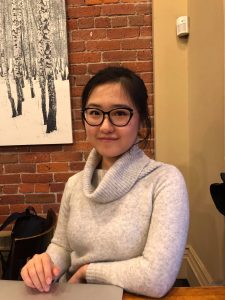Did you know that 40% of all the food that is produced in Canada goes to waste? The Food Mesh Project aims to inform the public about the gaps in our food system and help tackle the issue of food waste in the Lower Mainland.
PROJECT OBJECTIVES AND COMMUNITY ORGANIZATION
With the amount of food currently being produced, there should not be a food shortage problem. One of the biggest issues in causing food insecurity is the wastage in our food system. Addressing distribution failures can help target food security challenges in the Lower Mainland. Our team will collaborate with Food Mesh, NADA, and the Vancouver Food Policy Council to help connect businesses with each other, aiming to redistribute the potential food waste to places where food is needed.
source: foodmesh website
Food Mesh is an organization that aims to eliminate edible commercial wasted food and creates a closed-loop food system. Through an online app, they connect businesses who are in need of food and those who will are looking to get rid of extra food. The Vancouver Food Policy Council works to help improve food sustainability in Vancouver through government policy perspectives. There is a lack of policies regarding commercial food waste in the City of Vancouver. Implementation of new regulations can help minimize wastage and promote sustainable use of food waste. Nada is a zero-waste grocery store that aims to cultivate better consumer habits by inspiring people to purchase their food sustainably. They encourage people to bring their own containers to avoid non-reusable packaging.
#bulkyisbeautiful source: NadaGrocery Instagram
Project Goal: Produce a white paper that provides a comprehensive landscape of the current status, and that recommends how best to increase our collective food waste prevention and recovery initiatives in the Lower Mainland.
Objectives: Through collaboration with our community partners, we have three main project objectives that we hope to accomplish throughout the term. The objectives will be based on academic knowledge and aim to produce useful tools for the community.
- Environmental Scan: To conduct comprehensive research on statistics and economics behind food waste in the Lower Mainland and produce an infographic.
- Food Recovery Ecosystem Mapping: To create a Food Recovery Ecosystem Mapping, showing the players and assets in the Lower Mainland.
- Toolkit – Resource Guide: To develop a toolkit resource guide supporting new businesses in reducing and properly managing their food waste.
What we hope to gain from LFS 350: We hope to gain in-depth knowledge about the current condition of food waste in Canada, focusing on the lower mainland of BC. In addition, we would like to have a good idea of the local food distribution system and food supply chain, allowing us to analyze the possible reasons for food waste. Lastly, we will examine the effects of food waste on the economy and food insecurity and be able to suggest improvements to the condition.
GROUP INTERESTS
Goals: We hope to work with our community partner to reduce food waste in BC and the global scale. We want to provide information and create a toolkit that will help individuals and companies minimize the amount of food they discard.
Reasons for choosing the project: Learning about the scale and effects of food waste in our Land, Food and Community series courses has motivated us to ask questions such as; Why is there so much food waste? Who are the contributors? Where does it go? and What is being done to address the issue? The Food Mesh project will provide us with a platform to answer some of our questions and contribute to minimizing the impact of wastage in the Lower Mainland.
Even though our team has different backgrounds and interests, we are all connected through food. Through our own experience and our education at UBC, we have developed common interests in food waste, nutrition and health, agri-business and sustainability.
Our first meeting with Jessica at Food Mesh.
INDIVIDUAL MOTIVATIONS
Anita Koralewicz – I am a third year Global Resource Systems student specializing in Food and Resource Economics. I am interested in Resource Conservation Economics and Sustainable Agriculture. Having my own family farm has given me the ability to connect with the food community on a deeper level. I have been able to gain insight on agricultural production and understand a lot about the food chain. Something that has always shaken me is the amount of food wasted from farm to consumer. My farm has been trying hard to use sustainable methods of production and I think addressing the issue of food waste is an important factor. In a world which is driven by markets and competition, my interest have also grown around how business and economics play into addressing socio-environmental issues.
Michelle Rivadeneira – Hello, I am a 4th year majoring in Global Resource Systems, specializing in Sustainable Food Systems and Food Justice. During my time at UBC, I’ve been able to find my passions – social justice, sustainability, food, animals and people. It is very exciting for me to be part of this project and understand food with more depth – before it reaches the market, the challenges and how can it be improved to create a more sustainable and just food system. The amount of food the world currently produces is more than enough to feed of all of us, we just need to find a way to properly distribute in a fair and equitable way. Food waste needs to end, people must have access to nutritious and healthy food, and this project aims to explore deeper the roots of the problem, aiming to create awareness and tangible examples to work towards a better, more fair food system.
Penghui (Vicki) Wu-Hello everyone! I am a third year student major in nutritional science. I am really interested in resource economics and the relation between food, nutrition and economics. I have been to the Food Bank of Vancouver and realized that food insecurity is such a big problem in Canada. Also, as an international student from China, which has a huge population, I am very interested in the improvement of food distribution, and waste regulation. In both China and Canada, I can still see a large scale of food waste in school canteens, restaurants, grocery stores, etc. Thus, to solve this big issue, we should focus on limiting the food waste and organizing the food distribution. After completing this project, I hope we could have a better idea of the components in food supply chain, and figure out a improved and more efficient management of food waste.
Yuqing (Anne) Wu– Hey everyone! I am a third-year student studying food market analysis in Land and Food System. I had my internship in Fresh Roots last year and built up my interests in sustainable growing, urban farming. This year I am taking a International Nutrition course, during the lecture, we learnt that the production of food in the world are able to feed every people with 2800 kcal intake everyday. This number is larger than human average intake, but the reason that many people are still in poverty and not able to get enough food to eat is because large amount of foods in countries that are not in food shortage are wasted. By joining this project, I would like to learn more about how to prevent or reduce food wasting.
Han Bao– Hello, I am a third year Food Market Analysis student who is passionate about food and is also interested in marketing and business sectors. I am excited to be part of this project because it combines food justice and food insecurity with projects aiming to reduce the food waste and redistribute it as a new food resource to communities who need it. As a foodie, I feel sorry to see that food can never reach towards customers due to over-production or labeling issues. I expect that by the end of this project, we can collaboratively come up with practical toolkits to bring the food waste down. I would also feel happy to see BC Lower Mainland as a much more sustainable city.
FIRST IMPRESSIONS
Our food system is composed of many players, from production to consumer, our food is transported through a value-added chain. Speaking with Jessica, our community partner at Food Mesh, we were surprised as to how much waste is being produced in just Canada alone. She emphasized that many of the food waste and food security issues are rooted in distributional failures. By working with some of the key players in food recovery we will discover some of the innovative ways businesses are addressing food waste issues in the Lower Mainland. Our project goals aim to understand challenges faced throughout different levels of the supply chain and provide advice to organizations that are interested in redirecting their waste. Our individual backgrounds and strengths will allow us to collectively create a resource toolkit that is comprehensive and that can be useful to a diverse group of players. We are excited to be working with the community to address issues of food justice and to help close the food system loop.
Ernesto Sirolli emphasizes the need to listen to individuals in order to achieve effective results. He highlights that what drives change in communities on a local and global scale is passion. Like Sirolli’s company, Food Mesh listens to the needs of individual companies and connects them to the appropriate resources. Food Mesh connects companies that have too much food with others that are in need of food. This business-to-business (B2B) connection model not only helps businesses make affordable choices and reduce their wastage, but it also addresses important issues such as food justice. Food justice can be defined as having the right to healthy affordable and culturally appropriate food at all times. High-quality food products that were previously directed to landfills and now going to people that have limited access to food and improving food security in areas such as the Downtown Eastside. Repurposed waste is also beginning to emerge in the market and businesses can thrive off of innovations contributing to socio-environmental improvements.
Our project objectives aim to provide companies with resources to become more sustainable instead of pushing changes onto them. Food Mesh’s mission aligns very well with Sirolli’s approach in giving businesses the tools to make informed decisions and allowing them the freedom to be innovative in their approaches. Food Mesh has already helped redirect a large portion of waste in the Lower Mainland and we hope that our work can contribute to significant changes in the way our food is handled in the different levels of the food chain.



